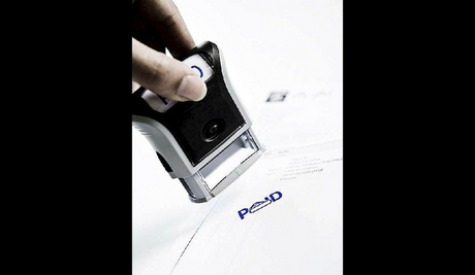 We are all still basking in the euphoria of the Olympic success of Jamaica's athletes with twelve medals to our credit. This is our best showing ever at the Olympics, a fitting 50th birthday present.
We are all still basking in the euphoria of the Olympic success of Jamaica's athletes with twelve medals to our credit. This is our best showing ever at the Olympics, a fitting 50th birthday present.
The athletes who have all made us proud have been congratulated in print and in the electronic media. Their images and names have been splashed across exercise books, newspapers, armbands, clothes and everything in between, and more often than not, for sale and without their permission, and with them not reaping any of the profits.
As such, it is an opportune time to examine the intellectual property rights related to this area.
The basic proposition here is that the athletes have an intrinsic right to the exclusive use of their images, identity and likeness. This translates into them being entitled to benefit financially from the commercial use or exploitation of their photographs/likeness and name.
Athletes should be aware of the possibility of their images and names being literally hijacked by others for their own commercial benefit.
The case law suggests that the court is not averse to recognising that a person of some renown or celebrity status has the right to the exclusive use of his image and likeness. So this translates to such a person exploiting his name and image for his own financial gain.
It would be wise for the athletes to immediately proceed to register trademarks under the Trademark Act and to protect themselves and in turn secure future earnings.
The Trademark Act states that a trademark must be capable of graphical representation and must be distinguishable. As such, the face of an athlete along with his name and signature, it is posited, could be registered with sufficient distinguishing features to ensure that it would not be rejected by the Jamaica Intellectual Property Organisation (JIPO).
International registration
The athlete should take steps to procure international registration as well, especially in those countries most likely to exploit and make financial gain at the expense of our athletes.
The trademark owner must specify the goods and or services for which registration is sought. Since the Act provides well over 40 classes, athletes/trademark owners should consider registering as many classes as they intend to use in the future to explore potential business opportunities.
After JIPO has accepted the trademark, it is published in the Trade Mark Journal and such publication is deemed as notice to the world. If the trademark is later infringed, the defendant cannot use the defence that he did not know that it was registered and had an owner, the court will look to the publication as sufficient notice.
Of course, since the trademark is property, it can be licensed to third parties. In such cases, as the athlete-trademark owner seeks to capitalise financially on his success, he should consider entering into contractual arrangements for the reproduction of his likeness on to the myriad of goods that are being produced in any event.
As regards the Internet and social media, it is crucial that athletes are alert to possible infringements. Cyber domain squatting is a serious issue and the athlete-trademark owner should move swiftly to register his domain name using his given names and any nickname before others do.
Otherwise, they may have to go the route of litigation to retrieve their own names from unscrupulous persons trying to profit from their celebrity status.
Pictures of the athletes are available even as they are competing and so, they must be live to any misuse of their images, and literally become their own policing officers.
In short, these athletes must recognise that they are actually brands and use the various laws that are available for their individual brand protection.
By: Nadine Atkinson-Flowers, Guest Writer
Source: www.jamaicangleaner.com

